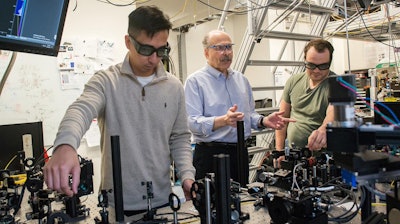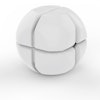
CHICAGO (AP) — University of Illinois at Urbana-Champaign researchers and Chicago-area scientists are working to create a communications network that can withstand hacking.
The University of Illinois announced last month that it will be joining the Chicago Quantum Exchange in its effort to explore quantum technology, an emerging field of physics and engineering that involves studying matter and energy at a small scale. Experts believe work in the field could eliminate cybersecurity risks and further pharmaceutical discoveries.
"This new branch of science was really born here in Illinois," said U of I Chancellor Robert Jones. "This Chicago Quantum Exchange is a huge step forward in ensuring that the revolution in innovation and discovery that will come in this field will be anchored right here where it all started."
The exchange was started last year and includes the University of Chicago, the Argonne National Laboratory and the Fermi National Accelerator Laboratory.
"What we're learning to do is finally exploit these particles, bring them into the real world and develop new types of devices, materials and computational techniques," said David Awschalom, a University of Chicago professor and Argonne scientist leading the project.
Research will include sending particles of light back and forth on a 30-mile long, unused network of high-speed optical fiber that runs between the laboratories in the Chicago suburbs, Argonne in Lemont and Fermi in Batavia. The quantum communication link will be used to test technology that can be the basis for an un-hackable network, officials said. The connection can allow communication between two objects without moving them.
"(It) is called teleporting information because we move the information, not the object itself," Awschalom said.
The University of Illinois also plans to invest $15 million to create the Illinois Quantum Information Science and Technology Center. The school plans to develop graduate degrees and undergraduate concentrations in quantum studies, and also hire at least eight more faculty members in the field.






















